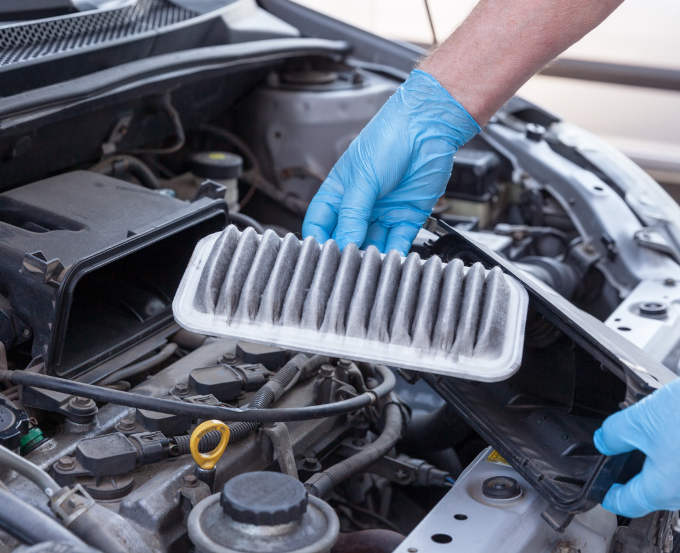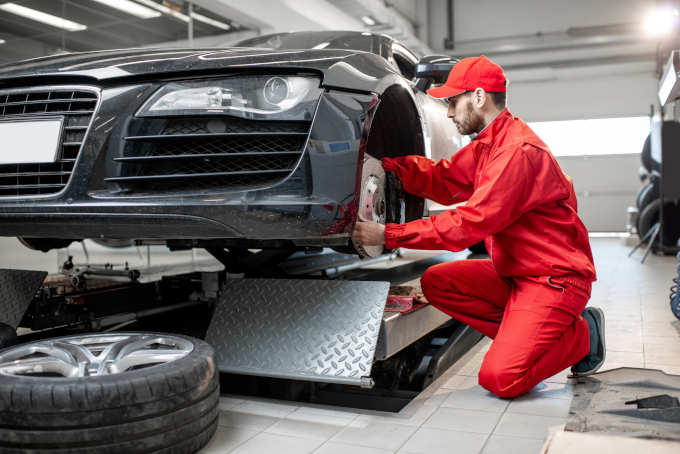Originally published on 07/30/2020
Updated on 05/23/2024
As the sweltering summer months roll in, your vehicle's air conditioner becomes indispensable for making your travels bearable. A properly functioning A/C ensures a cool and comfortable interior despite the scorching temperatures outside. However, like any other essential component in your car, the A/C system is prone to wear and tear over time, resulting in diminished performance or, worse, a complete lack of cold air.
To avoid hefty repair bills, it's crucial to remain vigilant for telltale signs indicating issues with your car's A/C system.
Understanding Your A/C System
That refreshing blast of icy air that greets you when you turn on your car's A/C on a hot day is a welcome relief. But do you know how it works?
The process of cooling your car's interior isn't as complex as it may seem. Your vehicle's A/C system comprises five main components, each playing a crucial role in delivering chilled air throughout the cabin. Understanding these components can help you diagnose and address any A/C maintenance or repair needs:
- Compressor:
The compressor is the heart of your A/C system. It pressurizes the refrigerant to cool the incoming air from outside while regulating temperatures to achieve the desired level of coolness. Additionally, the compressor aids in circulating air to the next component: the condenser. - Condenser:
Situated in front of the radiator, the condenser reduces the temperature of the compressed air from the compressor to ensure it's at the optimal temperature before being distributed further. - Receiver/Dryer:
Before reaching the compressor, the refrigerant must transition from a liquid to a gas state. The receiver/dryer component prevents any harmful liquids from entering parts of the A/C system that could be damaged by fluid presence. - Thermal Expansion Valve:
This valve monitors both the pressure and temperature of the air to ensure that the cooled air matches the temperature set on the dashboard or control panel. - Evaporator:
The evaporator blends the refrigerant with the airflow heading to the vents, ensuring you experience a refreshing burst of cold air when you activate the A/C.
5 Telltale Signs of A/C Trouble
Now equipped with a basic understanding of your car's A/C system, you can recognize common signs indicating potential issues with the cooling system. Here are five warning signs to watch out for:
1. No Cold Air
If your A/C isn’t blowing cold air, it could be due to low Freon levels caused by a Freon leak. Alternatively, compressor failure, electronic control failures, broken wires, or control panel problems can all disrupt the A/C system's functionality.
2. Weak Airflow:
If you notice a decrease in the strength or temperature of the air coming from your A/C vents, it could indicate a problem with your A/C system that requires attention.
3. Unusual Noises:
Any abnormal sounds emanating from your A/C, such as rattling, grinding, or crunching noises, could signal underlying issues with components like the compressor, necessitating prompt inspection and repair.
4. Foul Odors:
Strange or unpleasant odors coming from the vents while the A/C is running may indicate various problems, including a clogged or dirty air filter. It's essential to address such issues promptly to ensure optimal A/C performance.
5. Interior Water Leakage:
While it's normal for a small amount of water to accumulate beneath your vehicle after using the A/C, water should never enter the cabin. If you notice water pooling inside your car while the A/C is running, it could indicate blocked drains that need immediate attention.
Maintain A/C Health with Good Practices
By staying vigilant for signs of A/C trouble and adopting healthy driving habits, you can prolong the life of your car's A/C system and minimize the risk of costly repairs.
Avoid attempting DIY repairs on your A/C system, as it's a complex and technical component best handled by trained professionals. Additionally, refrain from setting the temperature to the highest level immediately, as this can strain the system unnecessarily.
Keep your car's air filters clean to ensure proper airflow, and avoid pre-cooling your vehicle by idling before driving, as the A/C functions most efficiently when powered by the engine.
By paying attention to your car's A/C system and following these simple guidelines, you can enjoy comfortable drives year-round, knowing that your A/C will always keep you cool regardless of the weather.










